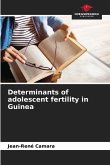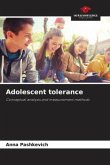Immigrants and their descendants have been the subject of debate in our society, particularly since the 1960s and 1970s, with the massive arrival on French territory of families from Africa, especially the Maghreb. Stigmatized and often singled out by the media, the descendants of immigrants, particularly from the Maghreb, are perceived as poorly integrated, troublemakers, school failures and sometimes delinquents. This doctoral dissertation studies the discourse of young people of North African immigrant descent who are academically successful in general high school. Based on 20 semi-directive interviews, this qualitative research shows how the young people interviewed evolve in society, particularly in different socialization spaces. The results show different forms of socialization among these young high school students in different spaces: family, peers, housing, cultural, religious, sports and school. The socialization spaces that the young people invest the most in are the family, school peers, culture and worship.








